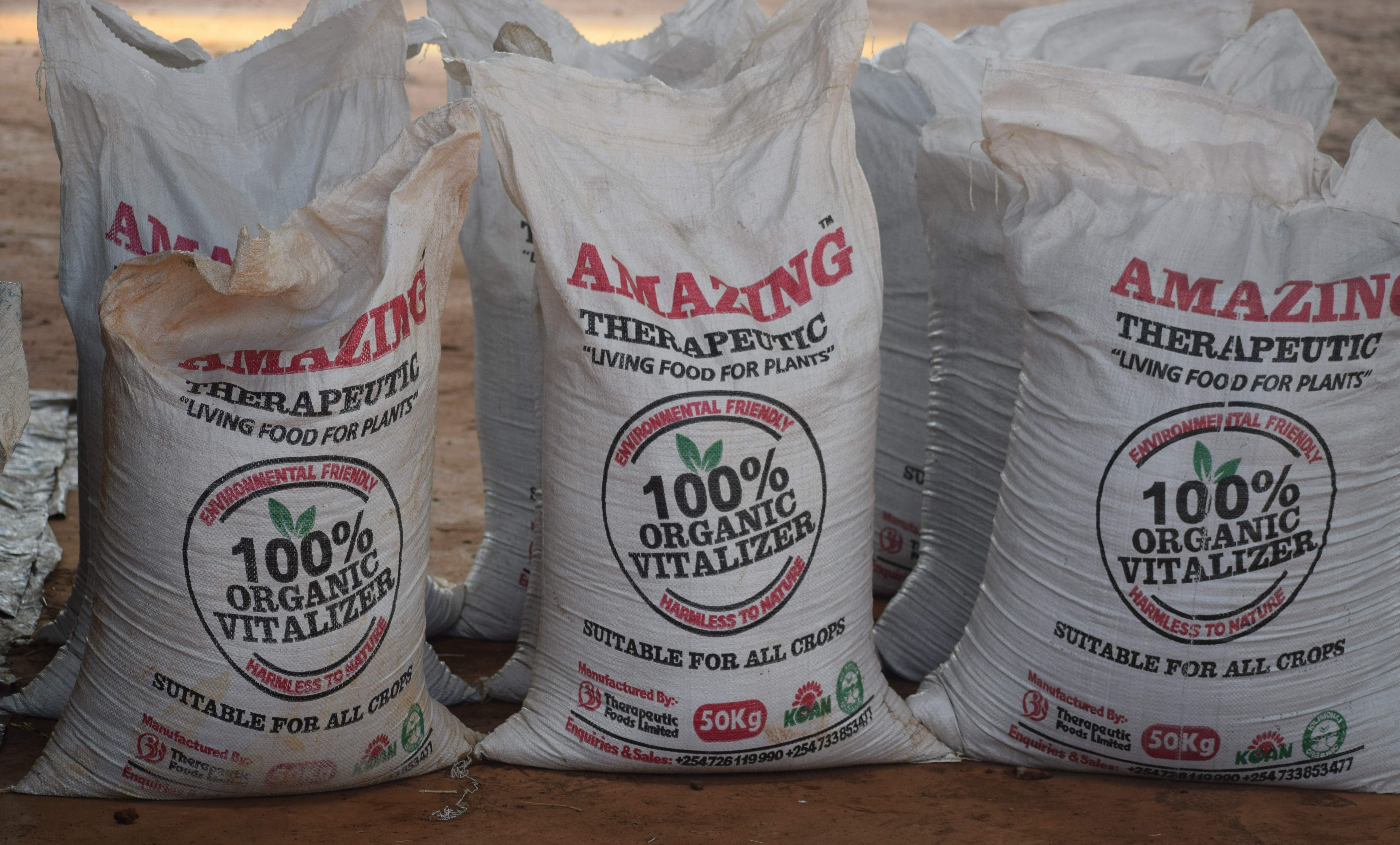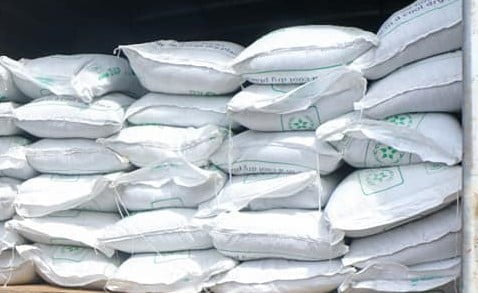By Kimuri Mwangi
For a long time, organic fertilizer has been struggling for identity in farming compared to chemical or mineral fertilizer. Most forums discussing fertilizer in the past have concentrated on chemical fertilizer with the minority proponents for organic fertilizer trying hard to catch up.
This however was the opposite during the recent three-day African Fertilizer and Soil Health Summit (AFSH) at KICC, Nairobi. The summit brought together 6 African heads of state, policymakers, private-sector players, farmer organizations, development agencies and others to discuss Africa’s widespread and decades-long decline in soil health.
Organic fertilizer was given attention during the discussions with speakers being clear that it was part of their submissions. As the African Continent deliberated on the way forward for its fertilizer needs in the summit, it was not a question of whether to include organic fertilizer but there was a deliberate effort to ensure that it was also part of the plans.
This was also evident during the parallel and side events at the summit where several were dedicated specifically to organic fertilizer. One such event was co-sponsored by the International Fund for Agricultural Development (IFAD) to discuss the emerging opportunities with organic and bio-fertilizers for Soil Health Africa.
Prof. Bernhard Freyer from the University for Continuing Education Krems in Austria who has worked for a long time in Africa said Kenya is presenting many already successful examples of dealing with organic material.
“We are also thinking about agro-processing residues that are recirculated in the flower industry or the coffee industry and I think there is a dynamic development in Kenya. I’m convinced that in the next years, the organic material and the organic fertilizer will play an important role in the market,” said Prof. Freyer. He also advised small-scale farmers who are not linked with strong markets to use a community-based approach in terms of finding a market saying there is great potential. Presenting their products as a group and not as a single farm is the way to go forward economically.
Dr. Aghan Oscar the founder of Eco Biofertilizer a Kenyan company that deals with organic fertilizer made from recycled waste biomass says they have had a very encouraging reception since inception. “It has been increasing between 20% to 30% every year and what you’re focusing on now is to try and escalate the knowledge that there is an existing solution. We do not doubt that our product works because it’s something that is scientifically developed and the farmers who use it come back and say they have an increasing yield between 30% to 70%. That is an indicator that is working for them,” he opined.
Dr. Abdou Tenkouano the Director General at the International Centre of Insect Physiology and Ecology (ICIPE) explained that the process of making organic fertilizers can also be used to solve other social problems like organic waste and youth unemployment in urban areas. “A lot of young people are migrating from the rural areas to the cities in search of jobs and then they find themselves jobless and later find “intelligent” ways of trying to survive. If you train them to use the technology that can turn waste into fertilizer that can be sold and become the source of wealth, then you also solve the problem of youth unemployment. And then many of the youth are women and because the technology used is relatively simple, they can also be involved. That’s where we come in as the International Centre of Insect Physiology and Ecology (ICIPE) where we say we can change and clean our environment, give jobs and improve our soils at the same time so that we are sure a better livelihood for the future and at the same time we ensure that today’s livelihood is also there for the youth,” explained Dr. Amudavi.
Despite the positive attributes of the uptake of organic fertilizer, there is a feeling that more needs to be done to have it reach or attempt to reach the level of chemical fertilizer.
Pro. Cliff Sibusiso Dlamini the Executive Director at the Centre for Coordination of Agricultural Research and Development for Southern Africa (CCARDESA) organic fertilizer financing requires a lot of effort in political support. “I was talking to someone outside this meeting and asking him how many governments in Africa have managed to put organic fertilizers on the list of subsidized fertilizers. I think there should be a strong recommendation that organic fertilizers are also listed under subsidized inputs for all smallholder farmers,” explained Prof. Dlamini.
He challenged organizers of such forums to include international finance corporations in future whether in the non-commercial banking sector or the commercial banking sector.
Dr Aggrey Agumya the Executive Director at the Forum for Agricultural Research in Africa (FARA) felt there is a lot of input needed policy-wise. “The policy space on the mineral fertilizer is much better established than on the biofertilizer. It’s not only policy, it’s also the capacity to be able to certify and approve these fertilizers to be commercialized that have to be developed. As you would understand the policy is the most important aspect to scale up this kind of work,” he added.



